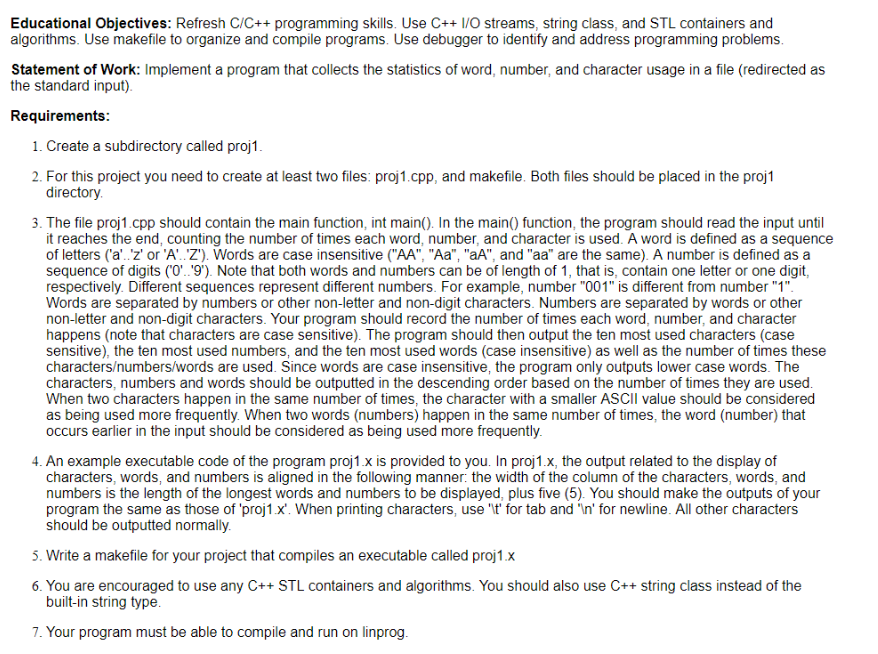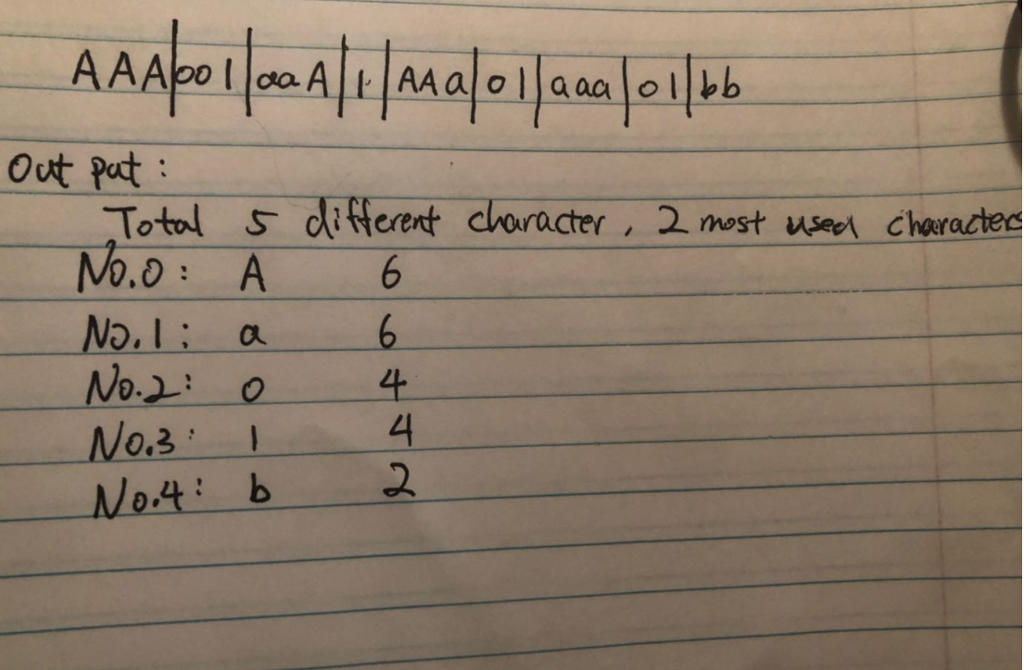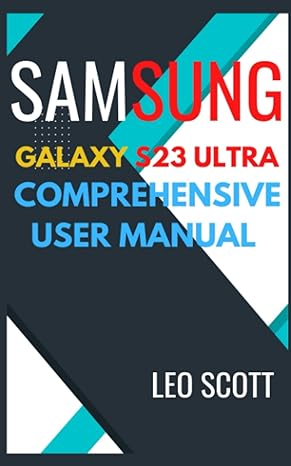
Please make the output look like this below:
for example: I have a .txt file containing a string: AAA001aaA1AAa01aaa01bb
the C++ program will be able to import this file and store it into a string and provide an output below.
I appreciate!!!!!!!!!

Educational Objectives: Refresh C/C+programming skills. Use C+ /O streams, string class, and STL containers and algorithms. Use makefile to organize and compile programs. Use debugger to identify and address programming problems Statement of Work: Implement a program that collects the statistics of word, number, and character usage in a file (redirected as the standard input) Requirements 1. Create a subdirectory called proj1 2. For this project you need to create at least two fles: proj1.cpp, and makefile. Both files should be placed in the proj1 3. The file proj1.cpp should contain the main function, int main(). In the main) function, the program should read the input until directory it reaches the end, counting the number of times each word, number, and character is used. A word is defined as a sequence of letters (a'.'z' or 'A'..Z'). Words are case insensitive ('AA", "Aa", "aA", and "aa" are the same). A number is defined as a sequence of digits (o"..'9). Note that both words and numbers can be of length of 1, that is, contain one letter or one digit, respectively. Different sequences represent different numbers. For example, number "001" is different from number "1" Words are separated by numbers or other non-letter and non-digit characters. Numbers are separated by words or other non-letter and non-digit characters. Your program should record the number of times each word, number, and character happens (note that characters are case sensitive). The program should then output the ten most used characters (case sensitive), the ten most used numbers, and the ten most used words (case insensitive) as well as the number of times these charactersumbers/words are used. Since words are case insensitive, the program only outputs lower case words. The characters, numbers and words should be outputted in the descending order based on the number of times they are used When two characters happen in the same number of times, the character with a smaller ASCII value should be considered as being used more frequently. When two words (numbers) happen in the same number of times, the word (number) that occurs earlier in the input should be considered as being used more frequently 4. An example executable code of the program proj1.x is provided to you. In proj1.x, the output related to the display of characters, words, and numbers is aligned in the following manner the width of the column of the characters, words, and numbers is the length of the longest words and numbers to be displayed, plus five (5). You should make the outputs of your program the same as those of 'proj! X. When printing characters, use 't' for tab and .in' for newline. All other characters should be outputted normally 5. Write a makefile for your project that compiles an executable called proj1.x 6. You are encouraged to use any C++ STL containers and algorithms. You should also use C++ string class instead of the built-in string type 7. Your program must be able to compile and run on linprog AAa o la aa ol Totul s diHerext cloracter 2 mesth choractes 0.0: A 6 No. : a 6 0.3 4 No.4: b








